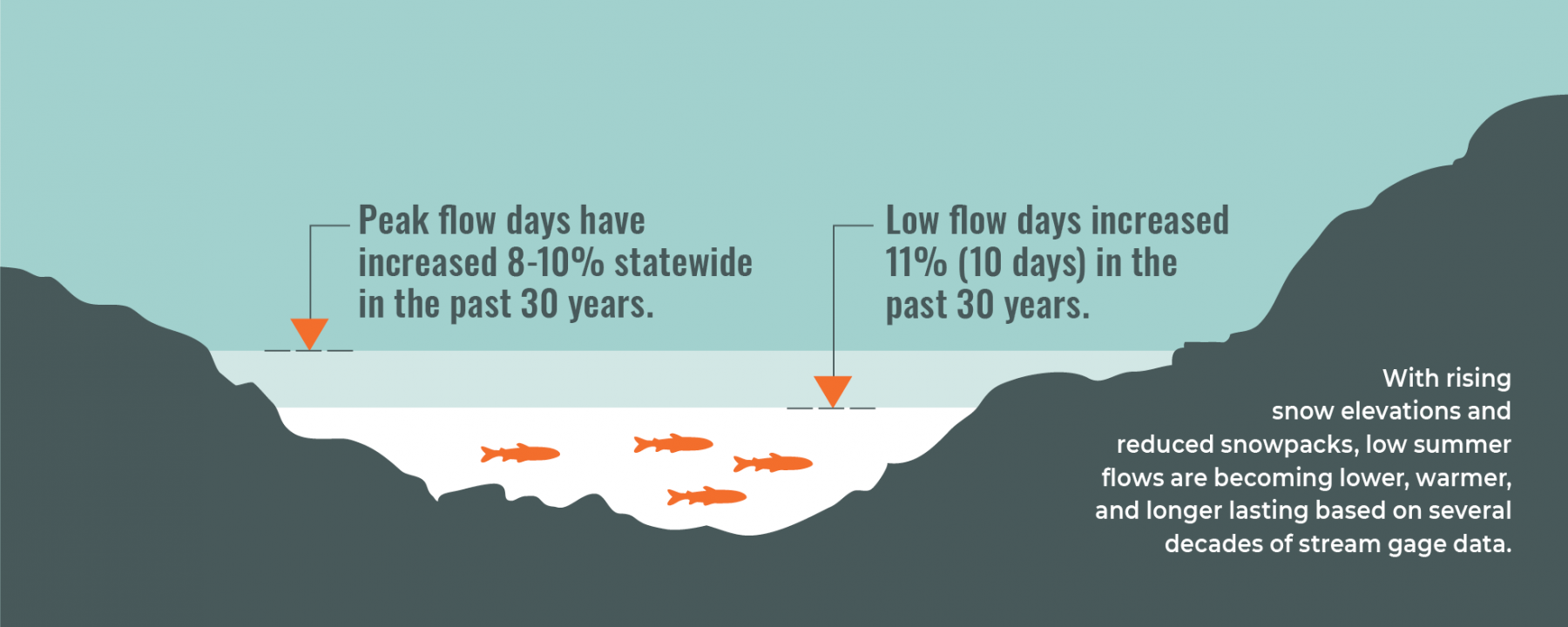PRESSURE: Stormwater Runoff
![]() Stormwater running off impermeable surfaces is the top pollution source impacting Puget Sound.25 As cities and suburbs have expanded, impermeable surfaces such as pavement, roofs, and other hard surfaces have increased.
Stormwater running off impermeable surfaces is the top pollution source impacting Puget Sound.25 As cities and suburbs have expanded, impermeable surfaces such as pavement, roofs, and other hard surfaces have increased.
As rain runs off these surfaces, it collects pollution from oil, fertilizers, pesticides, vehicles, and animal manure before heading, usually untreated, into street drains and then directly into streams, bays, and the ocean. Untreated stormwater can decrease the oxygen levels in the water,26 limit the ability of some salmon species to find food and avoid predators, make fish more susceptible to disease, and kill large numbers of fish in urban streams.27
Stormwater running off impermeable surfaces is the top pollution source impacting Puget Sound.25


PRESSURE: Low Summer Flows
![]()
Washington regularly experiences dry, warm summers, and climate change appears to be taking this pattern to extremes. Snow- or groundwater-fed streams gradually reduce flows throughout the summer. With rising snow elevations and reduced snowpacks, low summer flows are becoming lower, warmer, and longer lasting based on several decades of streamflow data. Agricultural, industrial, municipal, and residential water withdrawals from surface water or wells exacerbate low flows and high temperatures that limit salmon survival.
PRIORITIES AND PROGRESS
 Increasing Summer Streamflow
Increasing Summer Streamflow
Washington State, through the Department of Ecology, has developed rules for maintaining minimum flows and maximum temperatures for streams in many areas of the state. These rules ensure that water withdrawals supporting development will not create water shortages for salmon.
In areas of the state where legal rights to withdraw water from streams exceed biologically critical minimum flows, groups are working to buy water rights for environmental functions. Irrigation upgrades, such as higher efficiency watering systems and lined or enclosed irrigation ditches, decrease the amount of water needed to grow crops and may be eligible for grants to reduce costs to the landowner.
Addressing Stormwater Pollution
In 2021, after years of investigation, University of Washington researchers isolated 6-PPD-quinone, a compound formed from a common chemical used in tire manufacturing, as the chemical killing coho salmon in urban streams.28, 29 Researchers previously found that running stormwater through systems like rain gardens removes pollutants and reduces harm to coho.30 These discoveries, coupled with effective stormwater requirements, will protect salmon in cities, ensuring that Washington’s growing population coexists with salmon.
Photograph of hands by the U.S. Marine Corps
